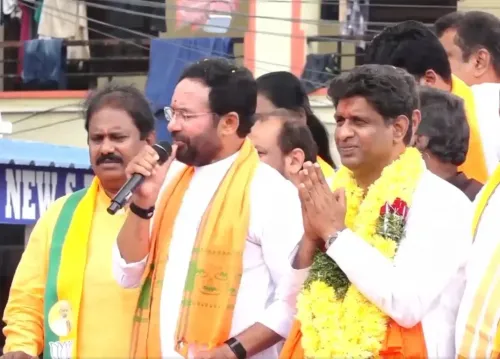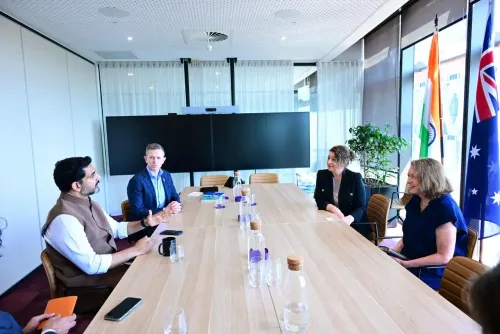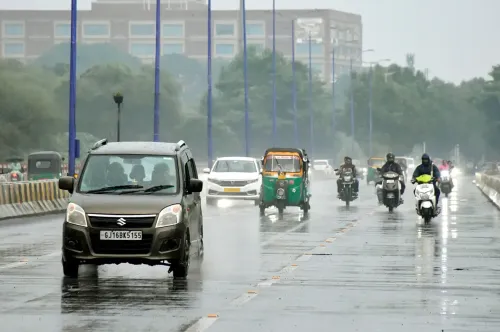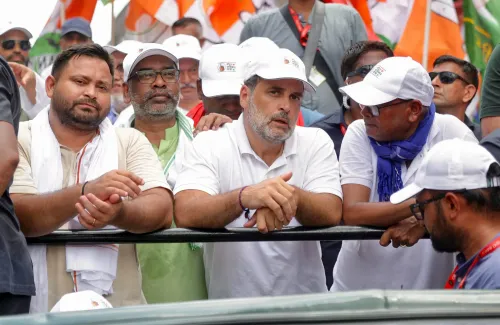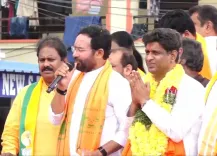Is the Wait for a Genuine GST 2.0 Over?
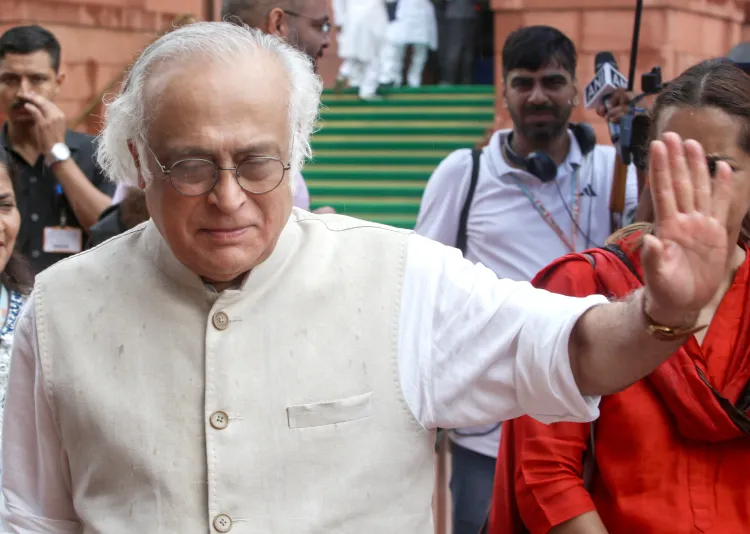
Synopsis
Key Takeaways
- GST 2.0 criticized for not addressing state concerns.
- Congress labels changes as GST 1.5.
- Calls for a simplified tax structure.
- Need for better support for MSMEs.
- State compensation remains a key issue.
New Delhi, Sep 4 (NationPress) Congress MP Jairam Ramesh has strongly criticized GST 2.0, asserting that it does not adequately address the issues and requests of the states, and that the quest for a true GST 2.0 continues.
He alleged that the government has overlooked revenue compensation, leaving the reform process incomplete.
The Congress leader referred to the announcement as “GST 1.5” and questioned whether the adjustments would genuinely benefit the economy.
He emphasized that his party has long been advocating for a GST 2.0 that simplifies the tax structure by reducing the number of rates, lowering rates on numerous essential items, minimizing tax evasion, eliminating misclassification and disputes, addressing the inverted duty structure (where output tax is lower than input tax), easing compliance burdens for MSMEs, and broadening GST coverage.
Ramesh challenged the effectiveness of the GST Council, questioning if it has been relegated to a mere formal entity, citing earlier remarks by Prime Minister Narendra Modi during his speech on August 15.
“The Union Finance Minister made significant announcements last evening following the GST Council meeting, which is a constitutional body. However, prior to the GST Council meeting, the Prime Minister had already disclosed the essence of its resolutions in his Independence Day address on August 15, 2025. Is the GST Council to be diminished to a formality?” the Congress MP expressed on his social media platform.
He remarked that the Finance Minister has finally acknowledged that GST 1.0 had reached an impasse, faced with a decline in private consumption, lackluster private investment, and ongoing classification disputes.
“In fact, the architecture of GST 1.0 was fundamentally flawed, a point the INC highlighted back in July 2017, when the PM opted to implement GST. It was intended to be a Good and Simple Tax but ended up being a Growth Suppressing Tax,” Ramesh noted in his statement.
The Congress general secretary overseeing communications mentioned that the recent announcements have gained attention since the PM had set pre-Diwali deadlines.
“Presumably, the advantages of rate reductions will be transferred to consumers. Nevertheless, the anticipation for a genuine GST 2.0 continues. Whether this updated GST 1.5, if such a term is applicable, stimulates private investment - particularly in manufacturing - remains to be observed. Whether this will alleviate the pressures on MSMEs is yet to be determined,” he asserted.
Ramesh, while critiquing the government, highlighted the issue of state compensation. “One crucial demand from the states, made in the true spirit of cooperative federalism — the extension of compensation for another five years to fully safeguard their revenues — remains unresolved. This demand has grown even more significant at this juncture.”

